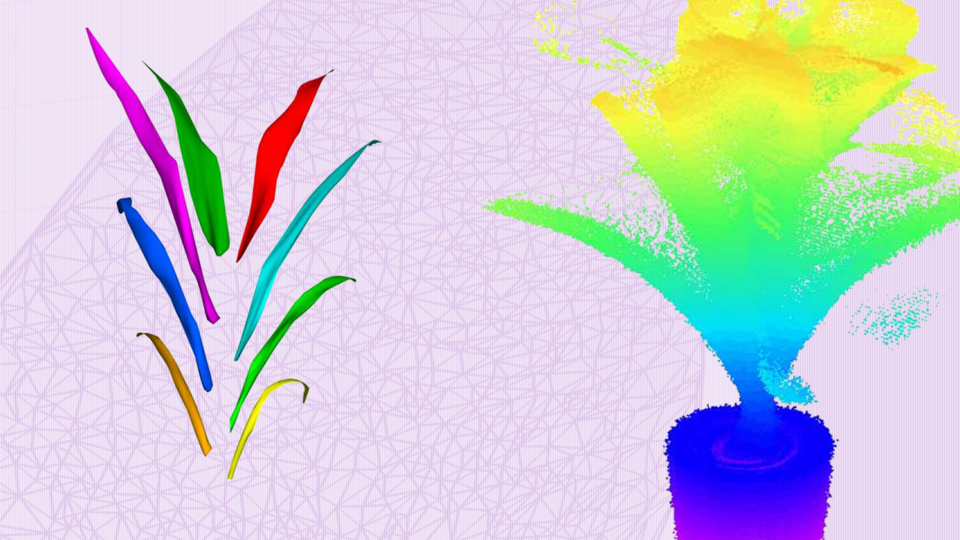
Assistant Professor Yufeng Ge, graduate student Suresh Thapa, and their colleagues have devised an approach using LiDAR as a way to automatically and efficiently gather data about a plant’s phenotype. Ge and team use a 360-degree LiDAR technique to collect millions of 3-D coordinates that a sophisticated algorithm then clusters and digitally molds into the components of the plant. The faster and more accurately phenotypic data can be collected, the more easily researchers can compare crops that have been bred or genetically engineered for specific traits.
The full article describing Ge's research ran in Nebraska Today on June 18. The article also has a video showing the LiDAR process.
This research was also featured in Futurity and Nebraska in the National News June 2018.